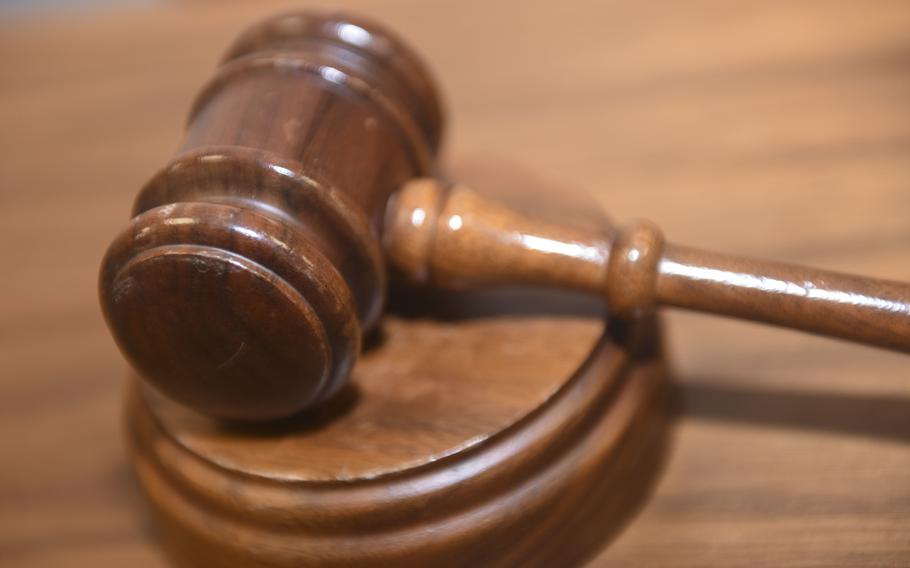Policymakers don’t usually think of the U.S. judicial system as posing a threat to national security, but an emerging legal threat may require them to change their perspective on the issue. The growing trend of mass tort litigation and new business models that allow funders to anonymously invest in lawsuits may be providing foreign entities with access to privileged information and opportunities to diminish American defense readiness.
Specifically known as third-party litigation funding (TPLF), this fast-expanding financing structure connects entities outside the legal system with attorneys who use the money raised to mount civil lawsuits, usually targeting corporations. This model is appealing to some because they believe it can provide access to justice for plaintiffs who might otherwise lack the resources to litigate against well-funded corporate defendants. However, it has turned out to be little more than a profit-seeking venture, where such backing is provided by third-party investors in exchange for a healthy percentage of a court award or out-of-court settlement.
While it first surfaced in Australia and Europe, lax and basically non-existent regulations surrounding TPLF in the United States have made the country its biggest market. Although there are serious concerns about the economic and societal impacts of TPLF — with critics arguing that it promotes a litigation culture and has encouraged frivolous lawsuits that burden the legal system and harm the American economy — it shows little sign of slowing down. In fact, one report estimated that fully half of global TPLF in 2020 was deployed in the U.S and third-party funding more than doubled in America from 2017 to 2021, with spending reaching as much as $5 billion annually.
In the past, outside investors were usually hedge funds, private equity firms, endowments, or other similar Wall Street financial entities. They were attracted not only by the large amounts of money that could be made, as mass tort litigations that involve thousands of individual claimants can sometimes yield multi-billion-dollar settlements, but also by the prospect of investment vehicles that are not tied to volatile stock markets or global economic fluctuations.
Now, though, there is growing concern that foreign financiers may be getting involved, and there are fears that they may be seeking much more than just a quick return on their investment, including access to crucial technologies that could put our national security at risk.
Given the fact that there are almost no regulations governing TPLF in the United States, outside funders can remain anonymous and exert control over courtroom proceedings behind the scenes, without fear of being exposed. Foreign companies could sue their American counterparts to gain insight into their business practices, giving them a strategic advantage when competing for market share. Their endgame strategy could also be to potentially open up U.S. companies to regulatory scrutiny that would tie up their resources and impede their ability to operate.
Especially troubling is the possibility that adversarial foreign governments, or companies acting on their behalf, may use TPLF to advance their strategic interests at our expense. America’s national defense could be severely compromised by allowing countries like China or Russia to secretly intervene in U.S. courtrooms, but there is currently nothing that would stop them from doing so. As outside investors they could, in the course of some proceedings, theoretically secure access to confidential information such as innovative new technologies or manufacturing techniques. China, in particular, has been noted for its aggressive efforts to steal “technology and intellectual property in an effort to erode United States economic and military superiority,” and TPLF arrangements could effectively allow the American courtroom to be used as a vehicle of industrial espionage.
This lack of transparency regarding third-party litigation funding arrangements is a problem when it conceals the motives and actions of private sector domestic financiers, but it is a potential catastrophe of epic proportions when it involves foreign countries. Fortunately, there is a growing call for executive action that would require foreign governments and their agents or attorneys to disclose any involvement in the funding of litigation against U.S. companies, and there are also several ongoing legislative initiatives that would require similar disclosures. This development of a regulatory framework that addresses the unique challenges posed by TPLF is imperative and policymakers must act post-haste to ensure the resilience and security of the U.S. economic and defense landscapes against these emerging threats.
Rob Maness is a retired U.S. Air Force colonel and former commander of Kirtland Air Force Base, N.M. His combat decorations include the Bronze Star and Air Medal. He is currently the founder and owner of Iron Liberty Group LLC, the digital publishing company behind his website robmaness.com and his streaming TV show, “The Rob Maness Show,” on the Patriot.tv network. He resides in Madisonville, La.

(Joseph Barron/U.S. Air Force)